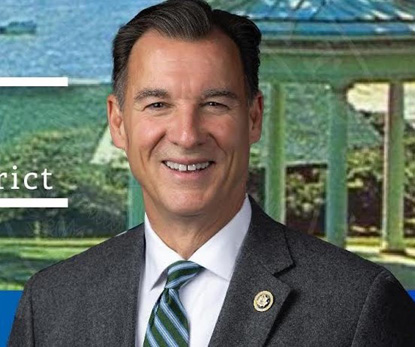
WASHINGTON, D.C. (TIP): Congressman Tom Suozzi’s (D – Nassau, Queens) bipartisan legislation passed unanimously in the Budget Committee. The “Increasing Baseline Updates Act” – Co-led by Republican Blake Moore (R-UT) – would require the Congressional Budget Office and The President to provide more annual updates to budget productions and technical data to Congress. The bill, H.R. 9716, would finally amend the Congressional Budget and Impoundment Control Act of 1974. “This is another in a series of bipartisan, common-sense bills I have sponsored during the session. Today in the Budget Committee, we demonstrated that, by working together, Republicans and Democrats can still get results,” Suozzi said.
“I was trained as a CPA; I am concerned about our budget and deficits. I know the importance of accuracy in budget estimates. If Congress and the public can get better data, we will be in a better position to fix our budgets.” Suozzi explained. “The latest CBO baseline anticipated that taxpayers will accumulate more than $22 trillion in deficit spending over the next ten years. If we are going to tackle our nation’s debt, we have to get serious about knowing where our problems are and what we can do to fix it.”
CBO’s baseline is a set of detailed projections of federal spending, revenues, deficits or surpluses, and debt for the current year and the following decade. Those projections inform policymakers about budgetary trends and the nation’s fiscal condition under current law. “The bill will enhance CBO’s objectivity, and frequent updates will ensure that CBO’s budget and economic outlooks are without bias,” Suozzi explained.
CBO typically aims to release at least two baselines a year. Delays in the appropriations process can cause CBO to miss its target of three baselines. The Budget Committee strongly supports releasing three baselines in order to complete its own budget enforcement and oversight responsibilities. Baseline projections supply the Congress with information about the budgetary outlook over the coming decade under current laws and a benchmark to use in determining whether proposed legislation is subject to various budget enforcement procedures.
“This bill will help tighten congressional procedures and result in a more fiscally responsible policy,” Suozzi concluded.





Be the first to comment